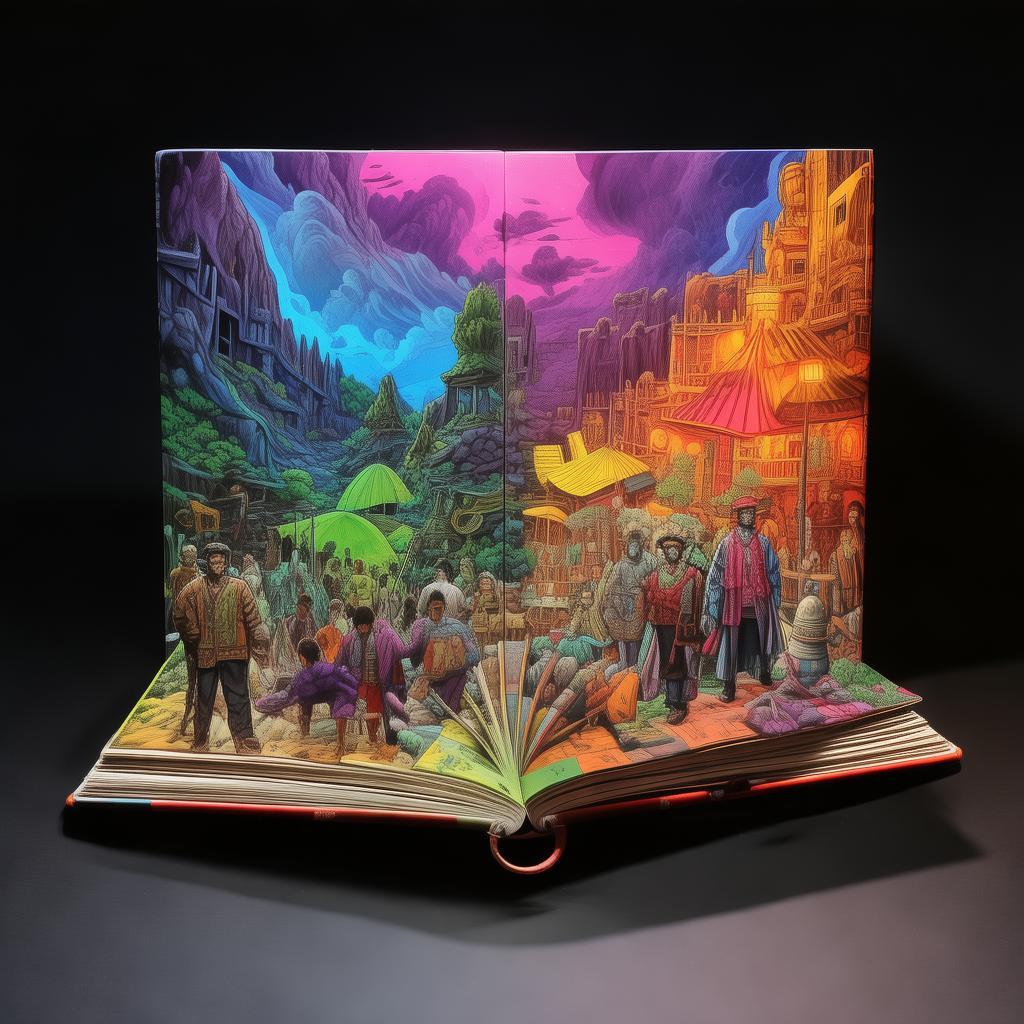The Labyrinth of Memory: A Reader's Memoir Unveiled
The opening sentence of "The Labyrinth of Memory" is a haunting whisper that resonates with the reader from the very first moment: "I opened the book, and it opened me to a world I had never known." This is not just a metaphor; it is a literal truth as the narrator, a woman named Eliza, begins to unravel the secrets of her own past through the pages of her favorite novels.
Eliza's story is one of discovery, of finding her voice and her place in the world by reflecting on the stories that have shaped her. Her journey begins with a simple realization: the characters in her favorite books are not just figments of someone else's imagination; they are echoes of her own life.
As Eliza delves deeper into her personal library, she finds herself revisiting classics such as "Pride and Prejudice," "Great Expectations," and "To Kill a Mockingbird." Each novel serves as a mirror, reflecting different aspects of her own story. The pride and prejudice Eliza feels in her own life finds a parallel in Elizabeth Bennet's struggle to define herself beyond societal expectations. The themes of transformation and redemption in "Great Expectations" resonate with Eliza's own quest for self-acceptance. And the injustice and moral dilemmas in "To Kill a Mockingbird" mirror her own battles with identity and the struggle for justice in her own community.

The narrative is driven by Eliza's vivid recollections and the dialogues she has with the characters she has come to know so well. The reader is privy to these intimate conversations, which not only bring the characters to life but also serve to deepen the reader's understanding of Eliza's emotional landscape.
As the story unfolds, we witness Eliza's transformation from a young woman who feels lost in the vastness of the world to one who finds her purpose through the act of storytelling. She realizes that the act of reading and writing is not just a hobby; it is a way to understand and make sense of her own life.
The conflict in "The Labyrinth of Memory" arises from Eliza's struggle to reconcile her own experiences with the fictional worlds she has so deeply immersed herself in. She grapples with the question of whether her life could ever be as dramatic or meaningful as the stories she reads. This internal conflict is heightened when she discovers a hidden journal in her grandmother's attic, a journal that seems to hold the key to a family secret that has been buried for generations.
The development of the story is marked by Eliza's quest to uncover the truth behind the journal. She embarks on a journey that takes her to the same places where her grandmother once traveled, retracing her steps and piecing together the puzzle of her family's past. Along the way, she encounters obstacles and unexpected allies, all of whom contribute to her growing understanding of her own history.
The climax of the story occurs when Eliza finally confronts the truth about her family's secret. The revelation is not only shocking but also profoundly moving, as it forces her to reevaluate her own life and the role of literature in her search for identity. In a powerful twist, Eliza discovers that her grandmother's journal is not just a historical document but a guidebook for navigating the complexities of life.
The ending of "The Labyrinth of Memory" is a full circle, as Eliza realizes that her own story is just one thread in the vast tapestry of human experience. She comes to understand that the characters she has loved and the stories she has cherished have not only shaped her but have also given her the tools to tell her own story.
In the final pages, Eliza reflects on the books that have brought her to this moment of clarity. She acknowledges that while the characters in these stories are fictional, their journeys are universal. And in this realization, she finds the strength to face her own life with courage and grace.
"The Labyrinth of Memory" is a story that will resonate with anyone who has ever opened a book and found themselves transformed. It is a testament to the power of literature to heal, to inspire, and to connect us to the human experience. This memoir is not just a reader's journey; it is a universal story of discovery and transformation.
✨ Original Statement ✨
All articles published on this website (including but not limited to text, images, videos, and other content) are original or authorized for reposting and are protected by relevant laws. Without the explicit written permission of this website, no individual or organization may copy, modify, repost, or use the content for commercial purposes.
If you need to quote or cooperate, please contact this site for authorization. We reserve the right to pursue legal responsibility for any unauthorized use.
Hereby declared.









